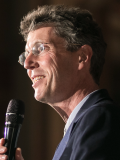GGKP News

This blog introduces GGKP's upcoming activities to help circular economy practitioners across the globe to collaborate and coordinate better.

Markets are strong and their language is well understood – money does talk. But maybe we need to make people talk and money listen. Takeaway from the 2023 World Circular Economy Forum, hosted by Sitra and other partners, and bringing together thousands of professionals on the topic of circularity – and how to achieve this seemingly distant and yet urgent goal in our economies.
Tools and Initiatives

This blog spotlights the gender & technology nexus, specifically in Small Island Developing States. It also aims at showcasing the gender transformative approach of the ISLANDS Programme as well as launching the Enhancing Gender Equality in Technology in SIDS Campaign.
Research

This GGKP blog reflects on infrastructure from a gender perspective as its design often fails to account for women's use patterns. By considering women's needs in the design and planning process of future infrastructure projects, making infrastructure more gender inclusive.
Partner in Focus

Nature-based solutions (NBS) can play a vital role in building community resilience and mitigating the impacts of climate change. Therefore, this blog gives an overview of the current state of play of NbS in Africa (NbS) and the opportunities they offer. To scale up NbS in Africa, the authors outline three strategies that can help facilitate the approach. The World Resources Institute and its partners have committed to expand their research on NbS in sub-Saharan Africa due to the importance of the topic.
Research

Ahead of COP15 in Montreal, financing the protection and restoration of nature is being highlighted more than ever as a critical solution. Marco Arlaud and Simon Nazer introduce UNDP BIOFIN's evidence-based approach to generating Biodiversity Finance Plans that pull from over 150 biodiversity finance solutions, and provide case studies of its application by several African nations on their path towards a green recovery.
Partner in Focus

The World Resources Institute, Cities4Forests, the World Bank, the Global Facility for Disaster Risk Reduction, the African Development Bank, the Green Growth Knowledge Partnership, the Caterpillar Foundation, and the Deutsche Gesellschaft für Internationale Zusammenarbeit have joined forces to evaluate NBS investment opportunities in SSA. They aim to identify the barriers and opportunities to scaling NBS, inform strategies on how to invest in NBS, and create enabling conditions for scaling and replication in other locations. This blog outlines three opportunities how to get involved with the research in the lead-up to COP27 and COP15.

Mega-sporting events such as the Olympics are exciting for fans the world over, but they can have profound impacts on the environment and economy of a host country. The massive infrastructure build-up, the resources and energy consumption, and the amount of human and financial capital invested in these ambitious undertakings...

International institutions, governments, local authorities, water utilities and water-intensive industries are all important for ensuring a safe and adequate water supply chain. But when it comes to achieving UN Sustainable Development Goal 6 on clean water and sanitation, there has been little to no progress in the European Union over the past five years.

A UN policy brief, "Enabling Sustainable Lifestyles in a Climate Emergency", offers a number of approaches for local and national governments to address overconsumption and facilitate more sustainable lifestyles.
